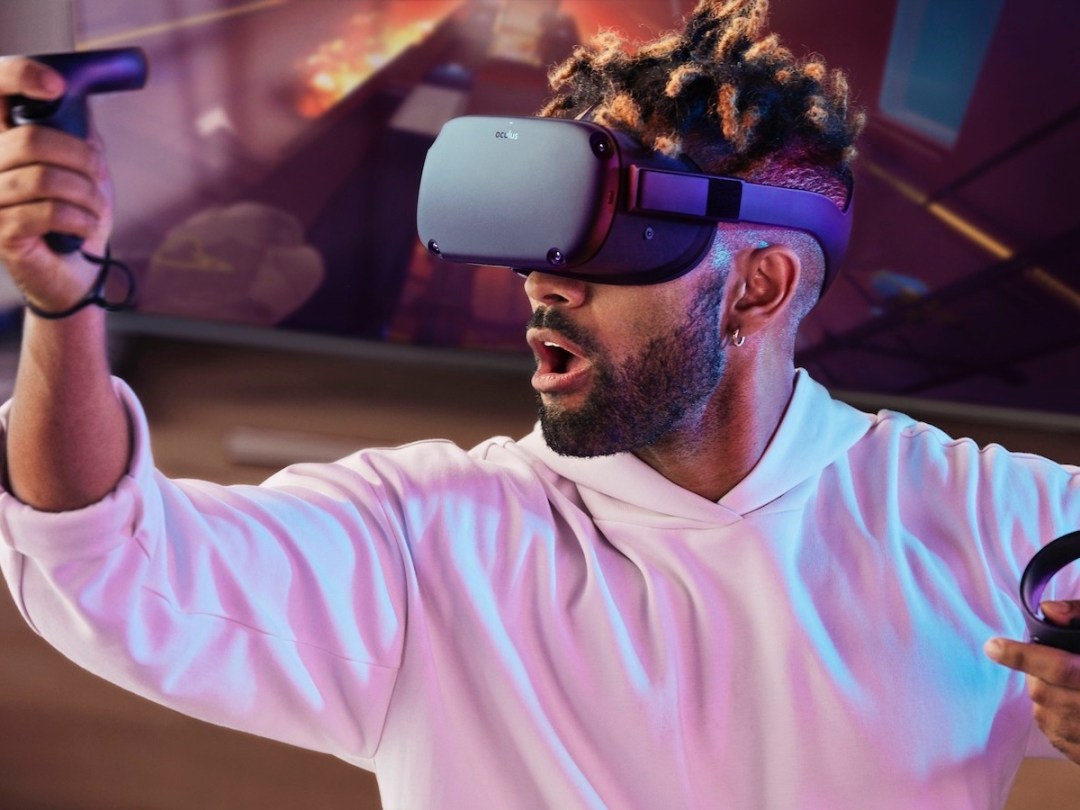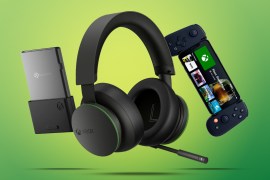5 reasons why Oculus Quest could be the most exciting thing in VR
The first VR game console could be on everyone's faces this time next year

While the title might suggest otherwise, Oculus Quest is not an epic VR role-playing game of some sort. No, it’s a proper new VR headset from the maker of the Rift, and it’s a very big deal.
It’s not as powerful as a Rift with a top-end PC attached, but the Oculus Quest has it beat in other key ways. Why? Because it’s a completely standalone headset, like this year’s Oculus Go, but it’s one with proper motion controllers and six degrees-of-freedom tracking. And all-in, it’s cheaper than a Rift, HTC Vive, or even PlayStation VR.
The Oculus Quest ships next spring, but there’s already plenty of reason to get excited. Here are five reasons why the Quest might be your first (or next) VR headset.
1) It’s 100% standalone and wireless
The Rift and Vive are impressively powerful VR headsets, but only if you have the PC hardware to make it happen – and if you don’t, then you’re talking about a potential £1000 investment on top of the headset. The PlayStation VR requires a PlayStation 4, meanwhile, and the Gear VR and Google Daydream require certain flagship-level smartphones.
The Oculus Quest requires nothing else. Like the Oculus Go, it’s a standalone VR headset with its own screen, processor, battery, and controllers. And as such, it’s also fully wireless.
That can enable completely new kinds of VR experiences, removing the bounds of needing to be tethered to a home device (or at least in close proximity). Oculus has already shown off the potential for arena-based VR experiences, with a co-op shooter called Dead and Buried in which several players – each wearing the Quest – can run around a physical, obstacle-filled space and see the digital equivalent in their headsets.
2) It’s (nearly) Rift-quality
Oculus says that the Quest is Rift-quality, but that’s not exactly true: games won’t look quite as strong on the Quest, and it’s not like you can run Rift games as-is without developer tweaking.
That said, the Quest does seem to put up a strong effort, and many Rift games will be ported over to it. Admittedly, it’s a bit surprising to see a Qualcomm Snapdragon 835 chip in there; essentially, last year’s flagship smartphone chip of choice on the Android side. By the time the Quest ships, it’ll be two years old.
But it’s more powerful than the Oculus Go, and given some of the announced titles already on the horizon, it’s not going to be stuck with the same kind of Gear VR/Daydream ports as we’ve seen with Oculus Go.
Also Read › Oculus Go review
3) It offers 6DOF and Touch controllers

Processing power and GPU grunt are important, but the inclusion of proper Oculus Touch controllers might be the biggest difference from the Oculus Go. These Touch controllers are a little bit different from the ones with the Rift, but they accomplish much the same task.
Between the Touch controllers and the "inside-out" tracking sensors on the Quest headset itself, you’ll unlock much more immersive experiences than the Oculus Go, Gear VR, or Daydream are capable of. Whether it’s pumping out rounds with a firearm, interacting with a wild creature, or something else entirely, the Quest should be able to envelop you within the VR experience.
4) It has strong software support
If the Oculus Quest is truly going to succeed, then it needs games – an abundance of high-quality experiences spanning a wide array of genres. Luckily, the early signs look good.
Oculus says that more than 50 titles will be ready for launch, and it’s coming with some of the better picks from the Rift and other platforms – including adventure game Moss, tense mountain climbing game The Climb, and Epic Games’ android blaster Robo Recall.
Add Superhot VR to that list, along with 2019’s Star Wars: Vader Immortal, and we can rest assured that the Quest won’t just be another mobile-quality headset when it comes to content.
5) It hits the sweet spot
The Oculus Quest will ship in spring 2019 at a price of US$399 for a 64GB model, and based on everything mentioned above, that sounds like a seriously sweet spot for VR adoption.
The cheaper Oculus Go is fine for casual viewing and play, but not powerful or compelling enough for serious gaming experiences. Meanwhile, the Rift and Vive pack more power and ever-growing game libraries, but are more complex and require a significant total investment for people without a gaming PC.
Meanwhile, the Oculus Quest is completely standalone and doesn’t require a PC, console, or smartphone to be the brains of the operation. It’s being billed as the first VR game console – like a PlayStation Vita that you strap onto your head.
True, $399 isn’t cheap for a gaming device – but if the Oculus Quest can bring enough of the Rift experience down to that lower all-in price point while keeping the software support rolling in, then it really could be the breakout device that propels quality VR into the mainstream.



